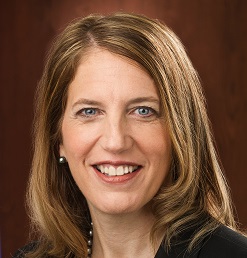By Bob Allen
The Obama administration released rules July 10 allowing “closely held” for-profit corporations to claim a religious objection to mandated coverage of contraceptives under Obamacare.
Final regulations by the Department of Health and Human Services specify that in light of the Supreme Court’s 2014 Hobby Lobby decision, businesses that are not publicly traded and are controlled by a relatively small number of people can qualify for a religious accommodation previously offered to faith-based nonprofits.
 “Women across the country should have access to preventive services, including contraception,” said HHS Secretary Sylvia Burwell. “At the same time, we recognize the deeply held views on these issues, and we are committed to securing women’s access to important preventive services at no additional cost under the Affordable Care Act, while respecting religious beliefs.”
“Women across the country should have access to preventive services, including contraception,” said HHS Secretary Sylvia Burwell. “At the same time, we recognize the deeply held views on these issues, and we are committed to securing women’s access to important preventive services at no additional cost under the Affordable Care Act, while respecting religious beliefs.”
Under the new rules, for-profit employers can opt out of paying for insurance that covers FDA-approved contraceptives that they believe can cause abortion by informing the government of their objection. A third-party insurer will step in and provide contraceptive coverage to employees at no cost to the company and be reimbursed by the government.
The administration also offered an alternative way for eligible organizations that have a religious objection to covering contraceptive services to seek an accommodation from contracting, providing, paying or referring for such services.
Religious nonprofits including Baptist General Convention of Texas-affiliated East Texas Baptist University and Houston Baptist University have filed lawsuits claiming a requirement that they fill out and submit a “self-certification” form to the Labor Department makes them complicit in providing employees with the very drugs and services to which they object.
Recently the 5th U.S. Circuit Court of Appeals ruled against the two Baptist schools. Last week they asked the U.S. Supreme Court to intervene.
Under the final rules, a religious nonprofit can simply notify the Department of Health and Human Services in writing of its objection, and the HHS will take responsibility for notifying the third-party insurer of the decision.
Barry Lynn of Americans United for Separation of Church and State said he doubts the administration’s latest attempt to accommodate religious objections to the contraceptive mandate will end litigation over the matter.
“The administration had to respond to this ruling, and today’s regulations are a good-faith effort to protect women,” said Lynn, an ordained United Church of Christ minister. “Although I hope I’m proven wrong, I fear that the Religious Right and its allies, the Catholic bishops, won’t stop until they have denied access to safe and affordable birth control to as many women as possible.”
Lynn blamed the whole “mess” on the Supreme Court, which he believes wrongly interpreted the 1993 Religious Freedom Restoration Act in the Hobby Lobby ruling.
The Becket Fund for Religious Liberty, which has been involved in several cases challenging the HHS mandate, called the new regulations one more attempt by the government to force religious nonprofits to distribute contraceptives they don’t want.
“The government keeps digging the hole deeper,” said Adèle Auxier Keim, legal counsel at the Becket Fund for Religious Liberty. With a recent Supreme Court decision allowing the government to expand its health care exchanges, Keim said, the government doesn’t need religious employers to help it distribute contraceptive drugs and devices.
“So why is it continuing to go out of its way to force religious objectors, from nuns to business owners, to do something it is more than capable of doing itself?” Keim asked.
Previous story:
Two Baptist colleges ask Supreme Court for protection from mandate

